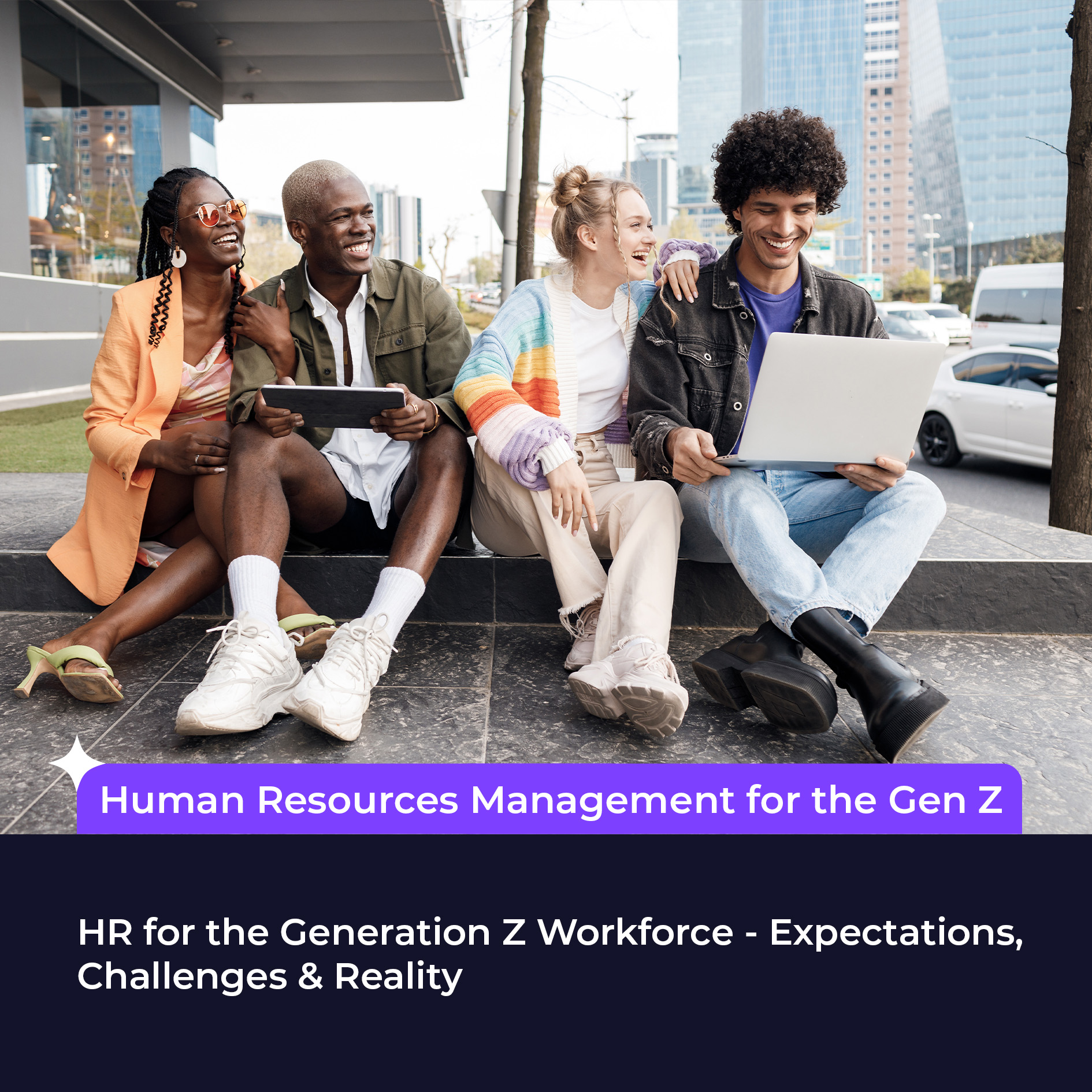
HR for the Generation Z Workforce - Expectations, Challenges & Reality
Human resource management has new problems and opportunities with each new generation that enters the workforce, most notably Generation Z. Human resource strategies in all sectors are being reshaped by the values, expectations, and abilities brought to the table by this generation, which spans the mid-1990s to the early 2010s. Success in attracting, engaging, and retaining Gen Z talent requires organisations to understand and adapt to these developments.
Born with Digital Enablement
The members of Generation Z are the first to have grown up in an era where digital technologies such as the internet, cellphones, and social media were ubiquitous. Their communication choices and expectations for workplace technology have been influenced by their background. They are interested in working for companies that use technology to improve efficiency, communication, and education, and they want to have a positive digital experience overall. Modern systems and techniques that enable remote work, on-the-fly learning, and efficient communication should be invested in by HR.
Purpose & Meaningfulness
Generation Z is also defined by their pursuit of meaningful work that has a positive impact on society. Members of this age are looking for companies that are serious about doing the right thing by society and the environment if they want to work for them. Therefore, when promoting the company as an employer and inviting candidates for positions, HR should stress the importance of the company's ethics, values, and community service. Young workers' engagement and loyalty can be further increased by providing them with opportunities to work on important initiatives and advance in their careers.
Values That Were Never Important Earlier
Values such as mental wellness, work-life balance, and flexibility are highly regarded by Gen Z as well. Workers of this generation are more likely to support flexible work arrangements that give them control over their own schedules and put their own health and happiness ahead of job security. This change necessitates that HR policies provide alternatives to traditional 9 to 5, such as remote work, more flexible hours, and an accepting atmosphere that recognises and treats mental health concerns.
Looking Beyond The Salary
One of the most important things for Gen Z is to keep learning and advancing in their careers. They want to learn new things and go up the corporate ladder fast. By outlining specific career paths, offering frequent feedback, and facilitating chances for professional advancement, organisations may entice and hold on to Gen Z talent. Mentorship programmes, online courses, and challenging initiatives that foster personal growth are all examples of what could fall into this category.
Feedback & Recognition
Workplace feedback and recognition hold special significance for members of Generation Z. In addition to wanting to feel appreciated and acknowledged for their efforts, they are always looking for feedback on how they are doing. Human resources should replace annual evaluations with more frequent check-ins and real-time feedback as part of a continuous performance management programme and recognition programme to match these expectations.
Diversity & Inclusion
Generation Z does not consider diversity and inclusion to be optional features; rather, they are expected. As a generation, we place a premium on having a diverse workforce and we expect our businesses to reflect that. Human resource initiatives should aim to actively cultivate diverse teams and foster an inclusive culture that values and welcomes all individuals.
Ready to Manage The GenZ Workforce ?
Ultimately, when it comes to managing Gen Z employees, HR needs to embrace digital innovation, be flexible, operate with a purpose, learn continuously, provide frequent feedback, and prioritise diversity and inclusion. Organisations can harness Gen Z's potential and cultivate a loyal, motivated, and dynamic workforce that is prepared to face future challenges by recognising and meeting their unique demands and values.
